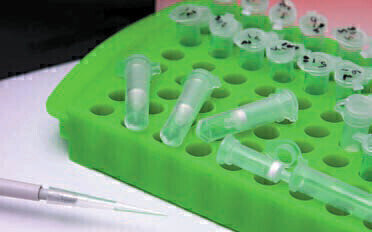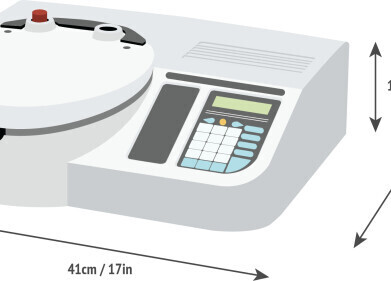Chromatography
Development of State-of-the-art Pediatric Healthcare
Sep 05 2011
Porvair Filtration Group has announced that the Childrens Research Institute at the Medical College of Wisconsin has used the company’s Chromatrap™ technology to develop more efficient and more precise Chromatin Immunoprecipitation (ChIP) assays. The Children’s Research Institute is renowned for its state-of-the-art pediatric studies. The CRI’s translational research programs are targeted to find life-saving discoveries and cures in the diseases that affect children and interventions that enhance quality of life for children and families living with chronic health conditions.
Over the last few months - Dr Ronald N Hines, Professor of Pediatrics, Pharmacology & Toxicology at the CRI has compared the efficacy of Chromatrap™ with traditional bead based ChIP technologies in his research into known regulatory elements controlling ontogeny of important human drug metabolising enzymes, such as CYP3A4. He commented: "I believe the bead-based system gave us a relatively small signal to noise ratio such that even minor deviations caused by variation in the efficiency of the bead system (for whatever reason) resulted in considerable variation in the assay."
He added: "By comparison I think the most substantial advantage of the Chromatrap system is more efficient and less variable trapping of the immunoprecipitated chromatin such that the signal to noise ratio is larger and influenced less by minor variations in trapping efficiency."
The Chromatrap™ spin column approach offers significant advantages compared to methods based on agarose or magnetic beads, which involve many steps of separation, pipetting and re-suspension. The BioVyon™ protein A discs used in Chromatrap™ spin columns have a proprietary internal structure, composed of pores that have inner surfaces specifically designed to maximise chromatin capture efficiency.
Porvair’s proprietary disc base material is chemically inert, reducing incidences of non-specific binding. All chromatin capture reactions take place inside the rigid porous disc; therefore there is no need for the many repetitive stages of suspension, collection and resuspension by pipetting. Additionally no pre-blocking step is required. The Chromatrap spin column protocol allows washing steps that are fast, efficient and less prone to error and the ’flow through’ characteristics of the column ensure excellent sample mixing and washing during the assay.
Digital Edition
Lab Asia Dec 2025
December 2025
Chromatography Articles- Cutting-edge sample preparation tools help laboratories to stay ahead of the curveMass Spectrometry & Spectroscopy Articles- Unlocking the complexity of metabolomics: Pushi...
View all digital editions
Events
Jan 21 2026 Tokyo, Japan
Jan 28 2026 Tokyo, Japan
Jan 29 2026 New Delhi, India
Feb 07 2026 Boston, MA, USA
Asia Pharma Expo/Asia Lab Expo
Feb 12 2026 Dhaka, Bangladesh



















